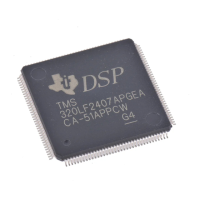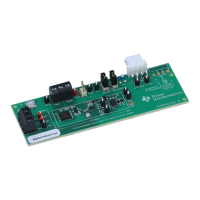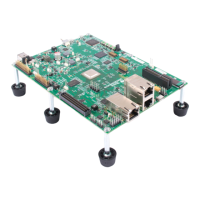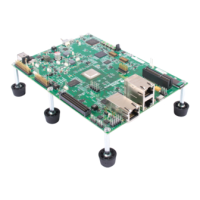Invocation
and
Operation
of
the
TMS34010
C
Compiler
3.2.2
Operation
of
the
Parser
The parser reads the C program (optionally preprocessed) and checks for er-
rors, then
outputs
an
intermediate file
which
is
used
as
input
to the code
generator.
Most
errors
are
fatal; that is, they prevent generation
of
an
intermediate file and
must be corrected before compilation can be completed.
Some errors,
how-
ever, merely produce warnings
which
hint
of
problems
but
do
not
prevent
compilation.
As function definitions
are
encountered, the parser prints a progress message
containing the name
of
the source file and the name
of
the function. For ex-
ample:
Iisource.c
l'
:
=>
main
The message lets you
know
how
far along the compiler
is
in its execution and
helps identify the location
of
errors.
After it finishes parsing,
GSPCC deletes the
input
file if the
input
file's exten-
sion
is
.cpp
and the
-z
option
is
not
specified. Otherwise, the
input
file
is
kept.
3.3
The
Code
Generator
(GSPCG)
The code generator (GSPCG) converts the intermediate code generated by'the
parser
into
assembly language source code suitable
for
direct input
to
the as-
sembler
or
for modification
with
a text editor. The code produced by GSPCG
is
reentrant, relocatable, and can be stored in ROM.
3.3.1
Invoking
GSPCG
3-4
The
following
command invokes GSPCG:
.'l§££9:
[input
file]
[output
file]
[tempfile]
[options]
where:
input
file
output
file
tempfile
options
is the name
of
the
input
file,
which
is
the file
output
by
GSPCC
with
the
extension.if.
If
this argument
is
not
speci-
fied, a prompt appears.
is
the name
of
the
output
file to
be
generated. The default
name
for
the file
is
the name
of
the
input
file appended
with
the extension .8sm.
is
the name
of
the temporary file generated and used by the
GSPCG. The default name
is
the
input
filename appended
with
extension .tmp. This file is deleted after use by GSPCG.'
lists
any
of
the available GSPCG options (see Section 3.3.2,
GSPCG Options). These options can appear anywhere
in
the
invocation
line and
are
not
restricted
to
follow
the list
of
fi-
lenames.
